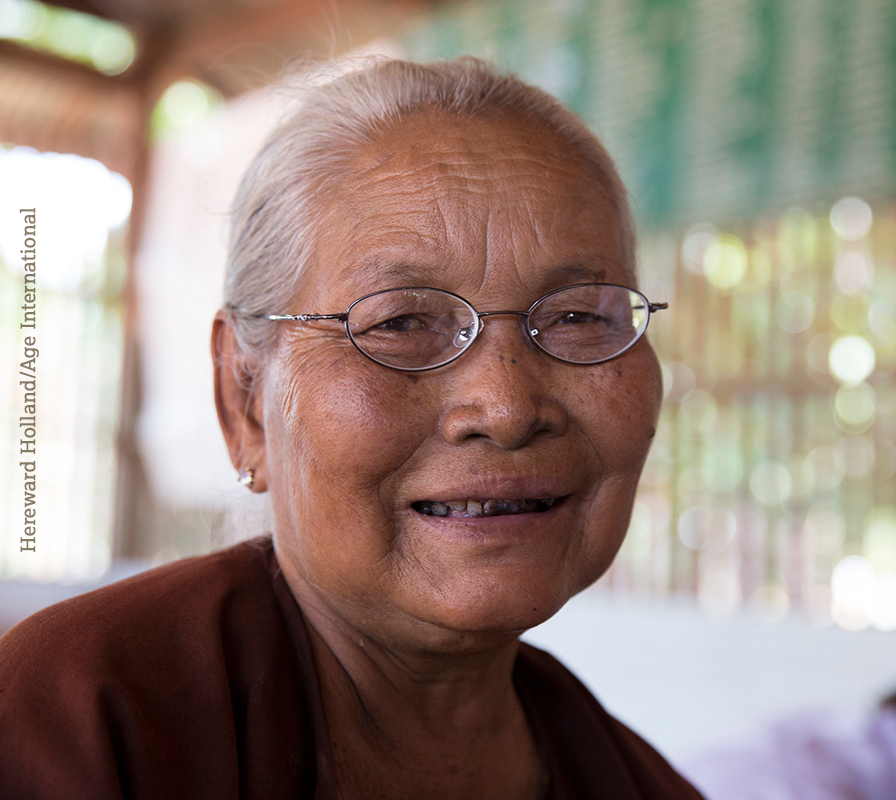Violence against older people is a global phenomenon says HelpAge International as activists call for a UN Convention on the Rights of Older People
Violence against older people is a global issue, says HelpAge International on World Elder Abuse Awareness Day, (15 June), as activists in 40 countries call for a UN convention on the rights of older people to protect them and bring the perpetrators to justice.
- In the Philippines 40.6% of older people surveyed had personally experienced abuse and many listed their own children and family as the perpetrators of the abuse (4)
- In Bangladesh, 88% of older people were mentally abused, 83% neglected, 54% economically abused and 40% physically abused. Of the physically abused, 54% were women and 45% were men. (1) See Notes to Editors
- In Mozambique, 17% of older women and 20% of older men surveyed had experienced physical abuse.(2)
- In Peru, 76% of older men and 61% of older women surveyed had experienced theft, deception, eviction or other actions involving money or property.(2)
- In Sweden, 30.8 % older men and women reported being victims of any type of abuse over the previous year (3)
A review of eighteen research surveys covering fifteen countries over the last seven years showed that a third of older people reported being subjected to a variety of abuse and violence. Men and women were affected in nearly the same way in four of the studies which were broken down by sex. But much more research data is needed on this issue, said HelpAge. Link to research: https://www.box.com/s/mqlay86bmttjj38fj214
“These findings reaffirm the need for a convention on the rights of older people,” said Bridget Sleap, Senior Rights Policy Advisor at HelpAge International.
“A new convention would set standards prohibiting violence against older men and women that currently don’t exist in international human rights law. It would draw attention to this widespread violence that is currently being ignored or denied in many places.
“Very few older women and men report violence to the authorities or seek justice for the crimes committed against them. A new convention would require governments to change their national legislation so that it prohibits this kind of violence and provides access to justice to those older people subjected to it,” added Sleap.
The call for a new UN Convention
Older rights activists taking part in the Age Demands Action for Rights campaign will be urging their national governments to insist on a new UN convention on the rights of older people and ask that their leaders attend the UN Open-ended Working Group on Ageing (OEWGA) when it meets in New York this July.
“Older people are organising to advocate for themselves, but this does not absolve governments and societies of responsibility for protecting older people’s rights, a responsibility which they have long neglected. We need the convention now,” reported Dioscorro Benalla, 71, from the Philippines.
Violence against older people is not confined to one country or one part of the world. In Ireland, Age Action reported a harrowing tale of a woman accompanying her vulnerable friend home from hospital, only to have her friend physically and verbally attacked by her own two children.
However, preventative work is taking place. In Mozambique, a programme working to reduce violence against older women has worked. It reported reductions of 11.3% in cases of abandonment of older people by their relatives, 7.6% of physical abuse and a 6.9% decrease in verbal abuse from baseline study levels. Local radio stations helped to raise awareness about the issue by broadcasting plays and hosting discussions about violence against older people and how to deal with it.
One of the women involved, Rita, from Boane district in Maputo province, said: “Things have improved since the beginning of the project. Verbal and physical abuse by young people has reduced. The audience that participated in discussions after the broadcasting of the plays on community radio all denounced violence against older women which showed that the message was getting through to people.”
Another woman, Faustina, also from Boane district, said: “Bringing older women together to discuss issues of violence and to sensitize others has made us feel different. We are more involved and are free to give suggestion on how to reduce violence.”
Salvador Muchanga, a community leader in the Khongolote in Matola, who took part in the programme said: “The information on the cases of abuse against older people in our community is very important to reduce the level of violence and also to build the relationship between older people and other age groups.”
A UN convention would help scale up this type of programme.
Sign the Age Demands Action petition for a new UN convention on the rights of older people here: http://bit.ly/pSpask
For further information please contact:
Atchareeya Saisin
Media & Online Communication Officer

